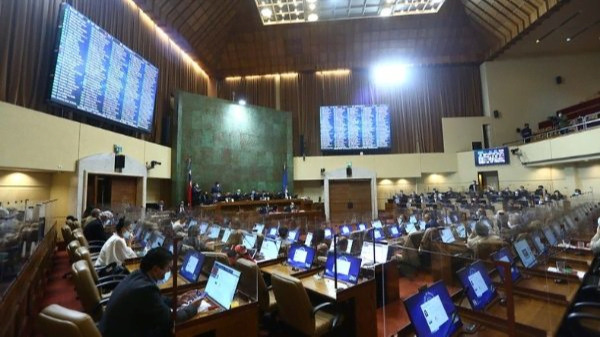
The Chilean Chamber of Deputies approved, however, a temporary VAT reduction for the duration of the state of calamity caused by the Covid-19 pandemic. | Photo: Official website of the Chamber of Deputies.
Santiago de Chile, May 19 (RHC)-- The plenary of the Chamber of Deputies of Chile has rejected for lack of quorum the project with which it sought to establish an exceptional and one-time tax on the "super rich" -- in the understanding of those fortunes of the country that exceed the equivalent of 22,000,000 dollars and that is intended to be able to finance an emergency universal income.
The project had entered the Chilean Lower House in June 2020 at the request of ten deputies of the left and after its approval, in general, last April 21, it was discussed in a plenary session, on the basis of the new report of the Constitution Commission, rendered by the deputy of the Communist Party, Camila Vallejo.
When it came time to vote, the bill only obtained 79 votes in favor of the 92 it needed; 47 deputies voted against and 10 abstained. During the discussion, Deputy Ignacio Urrutia called on the right not to give in to "left-wing populist ideas" -- because, he said, that is what punishes the people at the ballot box.
Meanwhile, the parliamentarian Tomás Hirsch, said that if the right wing opposes this project, it means that "it has not understood at all" what the people demanded in the votes.
After the voting, Camila Vallejo said: "the right wing continues defending its financiers and rejects the tax on the super-rich. In any case, the differentiated VAT is approved and passes to the Senate. There we will reinstate the indication of the wealth tax to continue in the struggle."
The Communist deputy Daniel Núñez said as a reaction to the results that "the right wing uses its veto power to reject the tax on the super-rich." And he added that, in this way, "it continues defending tooth and nail an abusive distribution of the burden of this society."
As part of the discussion, the transitional reduction of the value added tax (VAT), set at 19 percent, to some basic and essential consumer products until December 2022, to reduce the tax burden on the middle class sectors, was analyzed.
The proposal sought to reduce VAT to 10 percent on the delivery and purchases of fuels, food for human or animal nutrition, sanitary products, hotels, health and dental care, aesthetics and beauty services, sports services and establishments (such as gyms), flowers and ornamental plants, and funeral services and companies.

